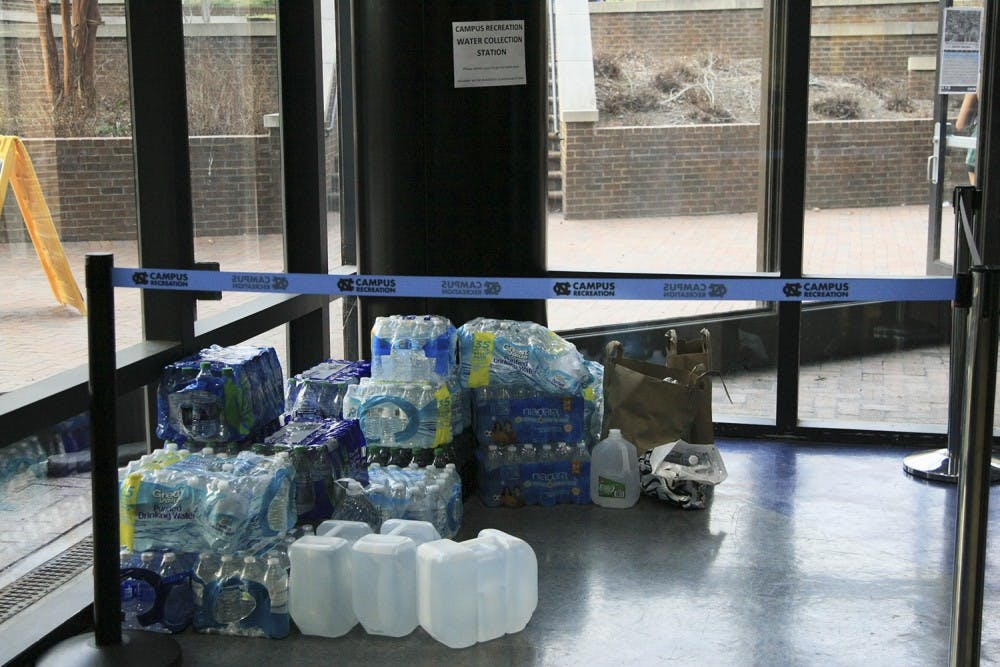It’s a week later and we’ve all survived the #watercrisis2017.
Though we kid, two important notes can come out of the shortage.
First, cheap, easily accessible water is most important for those in poverty. We commend the people who made sure everyone in our community stayed hydrated those couple of days.
Second, most people don’t actually need that much water.
The average American uses between 100 and 175 gallons of water a day, putting us well ahead of other countries in the world for water use. So, while we certainly need water, we don’t need nearly the amount that we currently use.
Using too much water can have devastating impacts on the environment. Though we are fortunate enough in Orange County to use reservoir water as opposed to relying on water from the ocean or from underground supplies, we still hurt our ecological community when we use too much.
Orange County water primarily comes from University Lake and Cane Creek Reservoir. UNC built University Lake in 1932 and the city built Cane Creek Reservoir in 1988 after outgrowing University Lake. Both are controlled by dams.
Dammed artificial lakes are generally not good for the environment. They block fish migration and sediment transportation, which is the driving force for the health of a river or creek downstream. Further, dams can cause the water table to lower, meaning that roots will be unable to reach underground water and human-made wells might dry up. Dams are linked to widespread ecological failures and increases in carbon dioxide output.
Water isn’t unlimited. Depleting freshwater resources should be a real concern for anyone who cares about the future of our community.



